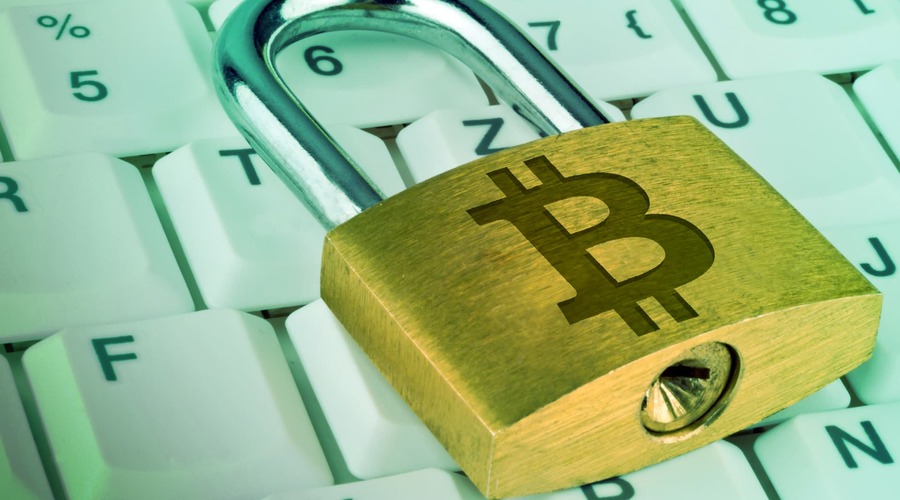
Bitcoin is a decentralized digital currency that operates on a peer-to-peer network. One of its main advantages is its security features, which make it difficult to hack or steal. However, as the value of Bitcoin continues to increase, it has become a target for hackers and cybercriminals. In this article, we will discuss some tips and strategies to protect your Bitcoin from hacking.
Use a Secure Wallet
One of the most important steps you can take to protect your Bitcoin from hacking is to use a secure wallet. A Bitcoin wallet is a digital wallet that stores your Bitcoin and allows you to send and receive it. There are several types of Bitcoin wallets, including desktop wallets, mobile wallets, hardware wallets, and paper wallets.
Hardware wallets are generally considered the most secure option as they are offline and not connected to the internet. However, desktop and mobile wallets can also be secure if they have strong security features, such as two-factor authentication and encryption.
Enable Two-Factor Authentication
Two-factor authentication (2FA) is an extra layer of security that requires you to provide two forms of identification to access your Bitcoin wallet. This can include a password and a code sent to your phone or email. By enabling 2FA, you can reduce the risk of someone hacking into your Bitcoin wallet and stealing your funds.
Keep Your Software Updated
Another important step in protecting your Bitcoin from hacking is to keep your software updated. This includes updating your Bitcoin wallet software and any other software or applications that you use to manage your Bitcoin. Updates often include security patches that can address vulnerabilities and reduce the risk of hacking.
Use a Strong Password
When setting up your Bitcoin wallet, it’s important to use a strong and unique password. A strong password should be at least 12 characters long and include a mix of upper and lowercase letters, numbers, and symbols. Avoid using common words or phrases and do not reuse passwords for multiple accounts.
Keep Your Private Key Secure
Your Bitcoin private key is a unique code that allows you to access and manage your Bitcoin. It’s important to keep your private key secure and not share it with anyone. One way to do this is to store it offline in a safe or secure location. If your private key is compromised, your Bitcoin can be stolen.
Be Cautious of Phishing Scams
Phishing scams are a common tactic used by hackers to steal Bitcoin. Phishing scams involve creating a fake website or email that looks like a legitimate Bitcoin service or company. The goal is to trick you into providing your login credentials or private key, which the hacker can then use to steal your Bitcoin.
To protect yourself from phishing scams, be cautious of unsolicited emails or messages and always double-check the URL of any website that asks for your login credentials or private key. Additionally, use a browser extension or anti-phishing software to help detect and block phishing attempts.
Use a VPN
A virtual private network (VPN) can provide an extra layer of security when accessing your Bitcoin wallet or other Bitcoin-related services. A VPN encrypts your internet connection and hides your IP address, making it more difficult for hackers to track or intercept your online activity.
Be Careful with Public Wi-Fi Public
Wi-Fi networks can be a security risk as they are often unsecured and can be easily hacked. Avoid using public Wi-Fi networks to access your Bitcoin wallet or other Bitcoin-related services. If you must use public Wi-Fi, use a VPN and make sure your Bitcoin wallet is secured with 2FA and a strong password.
Diversify Your Investments
Finally, it’s important to diversify your Bitcoin investments to reduce the risk of losing all of your funds in the event of a hack or theft. Consider spreading your Bitcoin across multiple wallet
Use Multi-Signature Transactions
Multi-signature transactions require multiple signatures or approvals before a Bitcoin transaction can be completed. This can add an extra layer of security as it requires multiple people to approve a transaction, reducing the risk of a single point of failure. Many Bitcoin wallets and services offer multi-signature transactions as an option.
Keep Your Information Private
Be careful about sharing information about your Bitcoin holdings or transactions with others. This can include social media posts or discussions in online forums. By keeping your information private, you can reduce the risk of becoming a target for hackers or cybercriminals.
Consider Insurance
Some Bitcoin exchanges and wallet providers offer insurance for your Bitcoin holdings. While insurance can’t prevent hacking or theft, it can provide some protection in the event of a security breach. Consider researching and selecting a provider that offers insurance for your Bitcoin holdings.
Use a Cold Storage Solution
A cold storage solution involves storing your Bitcoin offline, either on a hardware wallet or a paper wallet. This can provide an extra layer of security as it makes it more difficult for hackers to access your Bitcoin. However, it’s important to store your cold storage solution in a secure location, such as a safe or vault.
Monitor Your Accounts Regularly
Regularly monitoring your Bitcoin accounts and transactions can help you detect any suspicious activity or unauthorized access. If you notice any unusual activity, immediately change your password and enable 2FA if you haven’t already. Consider also contacting your Bitcoin wallet provider or exchange for assistance.
Educate Yourself
Educating yourself about Bitcoin security can help you better protect your Bitcoin from hacking. Consider reading articles and guides on Bitcoin security, and stay informed about the latest security threats and vulnerabilities. Additionally, consider attending Bitcoin security events or joining online Bitcoin security communities to learn from other experts in the field.
Conclusion
In conclusion, protecting your Bitcoin from hacking requires a combination of strategies and best practices, including using a secure wallet, enabling 2FA, keeping your software updated, using a strong password, keeping your private key secure, being cautious of phishing scams, using a VPN, being careful with public Wi-Fi, diversifying your investments, using multi-signature transactions, keeping your information private, considering insurance, using a cold storage solution, monitoring your accounts regularly, and educating yourself. By implementing these strategies, you can help reduce the risk of hacking and ensure the security of your Bitcoin holdings.
I’m a highly experienced and well-respected author in the field of Cryptocurrency. I have been writing on the subject for over 5 years which has made me one of the leading experts in the field. My work has been featured in major publications such as The Wall Street Journal, Forbes, and Business Insider. I’m a regular contributor to CoinDesk, one of the world’s leading cryptocurrency news websites.


